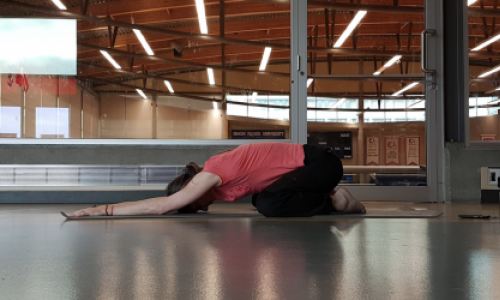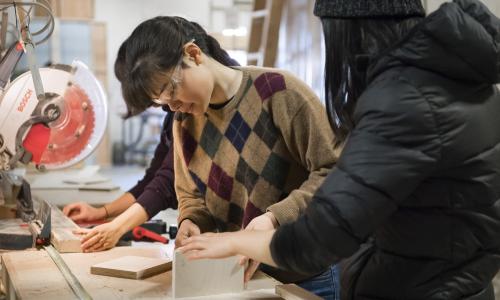
In the pre-COVID-19 days, balancing work and school was not necessarily easier, some of us had to commute from work to school and from school to work. Transit was as untrustworthy as that group member who would go MIA for days until the project deadline crept up, and if you had your own car to get to work, paying for gas and finding parking was another story.
But times have changed and so has the ways of working and attending classes. Now with COVID-19 around every corner (literally, you never know where it might show up), remote learning and working has become a necessary norm that has both positive and negative impacts on our health and well-being.
The idea of staying at home, not needing to transit and working from the comfort of your own home sounded blissful, and at times it definitely was. But interacting through Zoom (almost) every day, whether it was work or lecture, and then signing off to stare at your screen again can become exhausting and feel isolating. From my experience on working part-time and attending classes remotely online, here are some tips to consider if you find yourself in the same situation:
Planning Your Courses
This is not a new step for many students, but with remote learning, it is helpful to consider how manageable your course load will be in conjunction with your co-op work. In this case, critically assess each course syllabus, how many assignments are there? How difficult or time consuming will each of them be? If this is too complicated to gauge during the planning process, consider feeling out each class before (potentially) dropping one or two to accommodate your work term.
Distributing Your Workload
Having decided on your courses and work hours, try to sketch out a rough outline of how you will approach your work. I know this isn’t easy or fun to do, but in the long run it will be useful to set specific goals on what you want done by when, so you don’t fall into the “I’ll just do this tomorrow” trap. Finishing parts of your work bit by bit will also help with lessening the workload over time.
Adjusting Your Work Schedule
Don’t be afraid to ask for time off. If you find yourself in a pinch and being overwhelmed by too many deadlines, reach out to your supervisory and/or professor and try to plan a schedule that can accommodate the both of you. Try to plan out a schedule in advance, and especially before your mid-terms/finals week. Showing that you have made an effort to organize your work will also show that you are taking responsibility.
Take a Deep Breath
Things won’t always go as planned, and that’s ok (even if it feels like it’s not). When this happens stress can build up and everything become overwhelming, walk away from the screen. Make sure to take breaks, get up from your desk and take a little (socially distanced) walk. Talk with a friend, have someone to confide in when you feel suffocated by your work. While work and school are important, having an outlet to release pent up frustration and stress is important for you physical and mental health, which is paramount. Finding ways to clear and relax the mind will also significantly help with producing better results, whether it’s your schoolwork or co-op.
Finding and maintaining balance takes effort, trying your best does not always go as planned, and with COVID-19 the struggle has seemingly magnified. But remember, it’s ok to not always be 100%. Try your best, and when you can’t, don’t be afraid to take a break or seek support. A clearer mind and heart is the first step towards a work-study balance.
This article was originally published on the School of Communication Collective Blog website on April 15, 2021.















